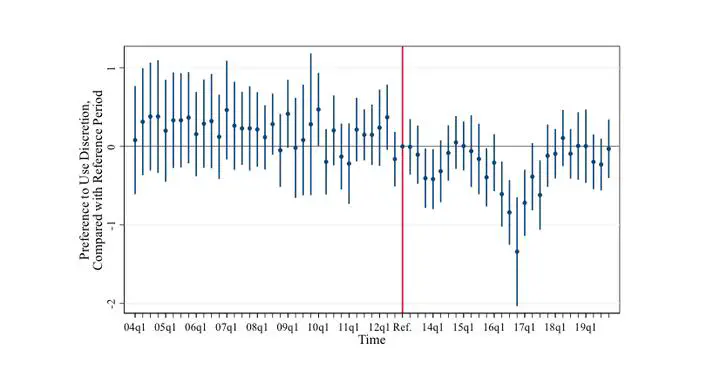The Dilemma of Political Control: Top-Down Inspection and Its Impact on Bureaucrats' Use of Discretion in Policymaking
 Image credit: Unsplash
Image credit: UnsplashAbstract
Effective governance requires a balance between political control and bureaucratic discretion. Sometimes, bureaucrats may voluntarily curtail their use of discretion in response to political control from above, even when they have the formal authority to make decisions. In this article, we argue that top-down inspection as a political control instrument can reduce bureaucrats’ preference for using discretion in policymaking by provoking their risk-avoidance strategies in an under-institutionalized accountability system. We substantiate this claim by examining the effect of central disciplinary inspections on provincial industrial policymaking in China. Using an original dataset of 612 central-level and 1907 provincial-level industrial policies stipulated between 2001 and 2019, we find that Chinese provincial governments significantly decrease their preference for using discretion in industrial policymaking during inspection active periods. This is shown by reduced willingness of provincial governments to target the manufacturing industry categories that have not been targeted by central industrial policies. Moreover, we find that central disciplinary inspections have a stronger impact on uninspected provinces who observe their peers being inspected than on provinces being inspected themselves. Additional analysis suggests that central disciplinary inspections, by dampening bureaucrats’ preference for using discretion in policymaking, lead to increasing policy homogeneity across provinces in China.